Endless Input: Learning a New Language Through Games
Turning nonsensical input into understandable words in your brain
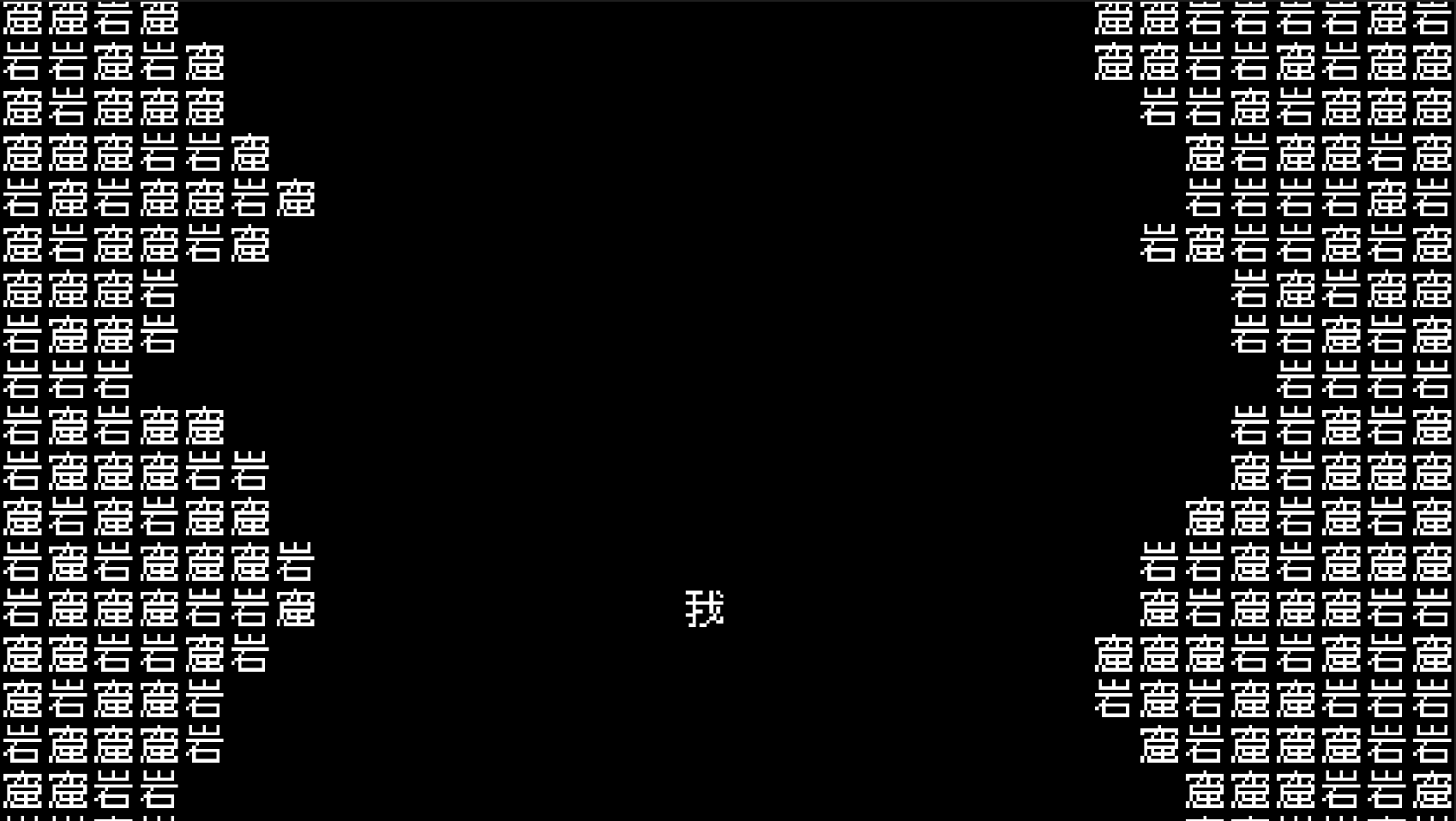
As a kid, I learned English through video games without ever noticing I was studying. As I became an adult, I was afraid of learning a third language since it now felt like a serious and restless endeavor, but the child-like wonder of absorbing knowledge through fun is always possible.
The Input Hypothesis, as explained by Stephen Krashen in his book Principles and Practice in Second Language Acquisition, attempts to answer the question of how language is acquired. His conclusion is that we learn through comprehensible input that is slightly above our level of understanding – that is, things that are mostly understandable besides a few words or grammar points.
Now, how does that apply that to video games? Well, they're a great source of input that can cover multiple genres and target audiences while also being entertaining. Having used them twice in my language learning experiences, I want to discuss my Japanese journey while hopefully motivating or helping in yours, even if you have a different goal.
Leveling Up Your Comprehension
Alright, hear me out. I know I just said this is a journey through video games but to get the most out of comprehensible input, you've got to comprehend it first. What that entails is learning the basics of the language, mostly the characters and the grammar. This is one of the most stressful points of learning, not because it's extremely hard but because your usual boring books and active study are unavoidable.
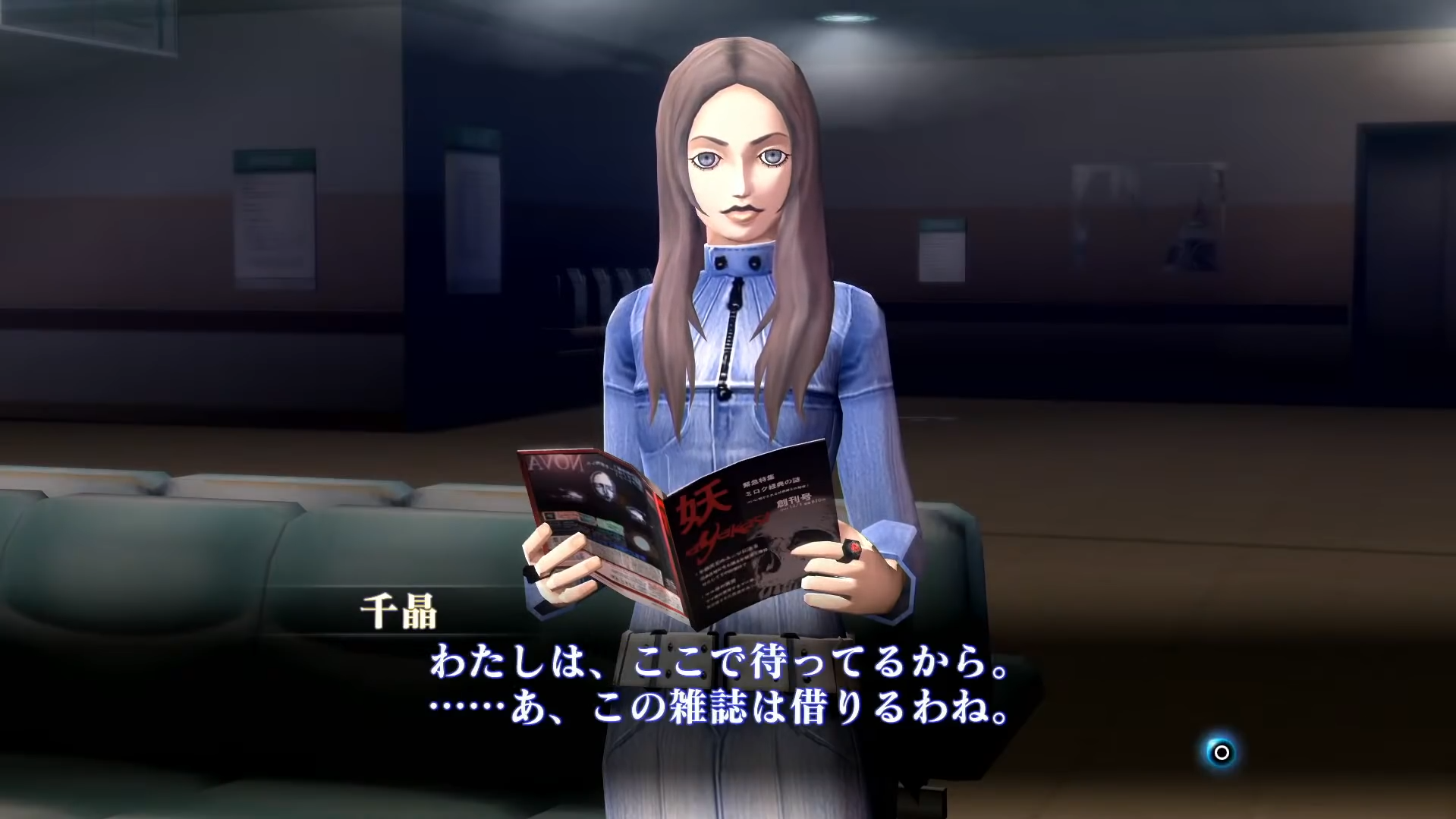
Depending on your language choice, this part can be shorter of longer. Learning the basics of English from a Latin language might be easier when you share the same alphabet and have similar sounds, meanwhile learning Japanese will require you to learn hiragana, katakana, kanji and very different grammar. What's important is that you find one method to learn the language and stick with it, bouncing between methods will only slow you down in what is the least impactful part of your journey.
In case you also have your eyes set on Japanese, I personally recommend Genki and Tae Kim's Guide to Japanese Grammar for starting books, as they are very understandable for complete beginners. If you'd rather watch videos instead, Cure Dolly offers what I consider the best video content for starting out, capable of taking you from having no grammar knowledge to being ready to start immersing in the language. Unfortunately, the creator seems to have retired from the channel due to health concerns, but her great work is still perfectly archived for new learners.
How long does this step take? It ultimately comes down to patience and confidence. Study too little and you might get frustrated at how little you understand things when reading or listening. Study too much and you'll be shocked at how much you struggle despite having spent so much time on it. I personally studied actively for 2 months before ever trying to play a game in Japanese, learning at least 2000 words before doing so.
As I took the plunge into immersion, I crashed head-first into a wall. All of my effort up until then had shown no reward, and all the technical knowledge I had acquired did not translate into experience. Looking back at it, that was just the first bump on the road. But at the time, it felt like a mountain.
Breaking the Language Barrier
The human brain works in funny ways. It doesn't matter how much you study in a vacuum, you cannot get experience in a language without using it. You might know all of the grammar and vocabulary composing a sentence while still not understanding its meaning. My brain had memorized all of these words and sounds, but it still did not recognize it as a language, as something useful. I present to you the main culprit for people giving up: The Language Barrier.
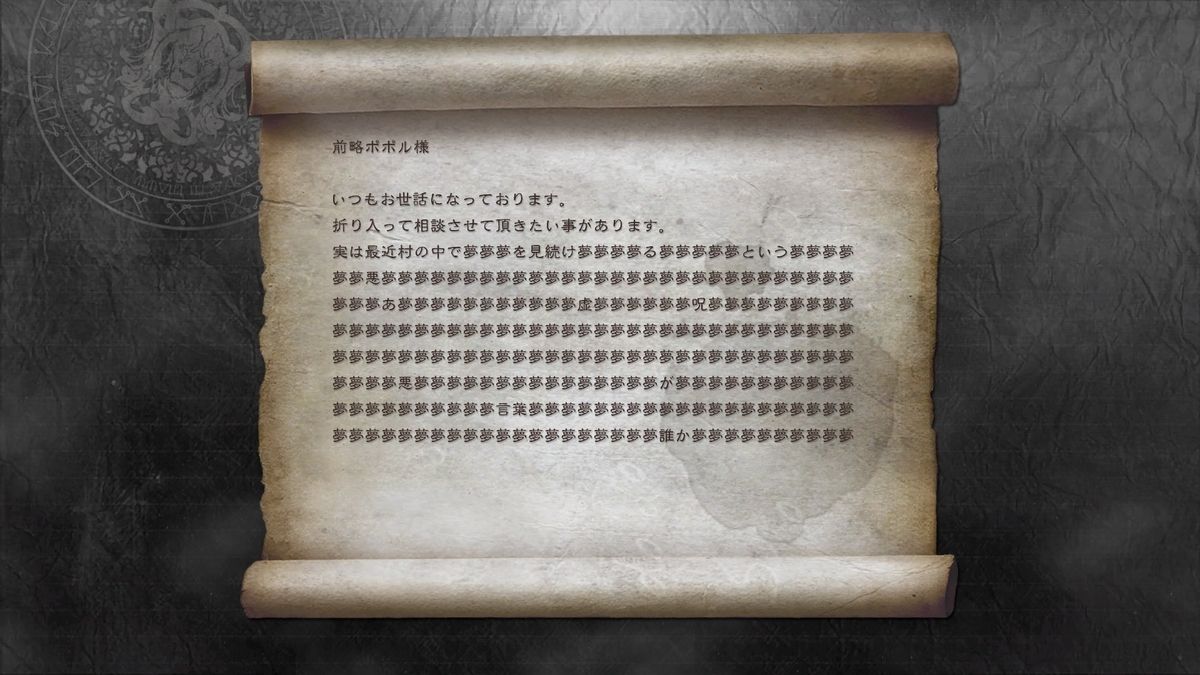
This inevitable negative part of the experience is something I wish I had known about before almost dropping my efforts, as it's something common but not often what others like to reminisce about. It's the awful feeling of looking at what seems to be a wall of text only for it to be something super easy you already knew the answer to, you simply refused to process it. But that's what makes surpassing it even more beautiful, because you'll only really notice the barrier is gone once you've already fixed the problem.
To break this obstacle in our journey, as crazy as it sounds, we must simply keep banging our heads against it. As you force words into your brain and punch holes into the language barrier, the wall will eventually work like a membrane as it recognizes that input as an important message. In short, keep consuming media in your target language daily to gather as much comprehensible input from it.
Now, why would someone choose video games over movies and books for this? In my case, it was mostly down to interest, which is more than enough reason, since you need the motivation to do this daily. If you want to get down to the pros and cons, it's an audio-visual medium like movies so it should be easier to understand than a book since it depicts what it's talking about. It also allows you to both read and listen.
On top of that, a lot of games have silent moments between major plot points as the focus goes back to gameplay, which offers a great break from learning that you can't get from others without disengaging from the medium.
There are cons to this approach, however, and one of the major ones in my experience is accessibility. Perhaps this is more prominent in Japanese, but a lot of games are released with region-locked language options. This is more often seen in console releases and it often resulted in me purchasing a game only to realize I can't actually use it to learn, so make sure to check the languages available on immersion material.
While it mostly comes down to your motivation and interests, here are two methods I recommend to keep mining away at the language barrier daily while minimizing stress:
- Choose easy games: The first method is to intentionally choose easy games for learning. This usually comes in the form of video games with children as their target audience, something like Pokémon or Yokai Watch, if your desired language is Japanese. While this method is safer and unlikely to ruin your motivation, it might grow boring if you're not actually interested in the contents of the game or if the vocabulary present in it is simply too easy.
- Choose what you want to play. The second method is to simply pick whatever interests you regardless of its difficulty. While playing something like Dark Souls to learn Japanese might seem as masochistic as beating the game at level 1 with your hands tied to your back, if it is what you truly desire, you will likely stick to it and eventually get through the process. The main downside of this method is depending on how hard the content you want to experience is, you might lose a lot of motivation or get tired of looking up too many words.
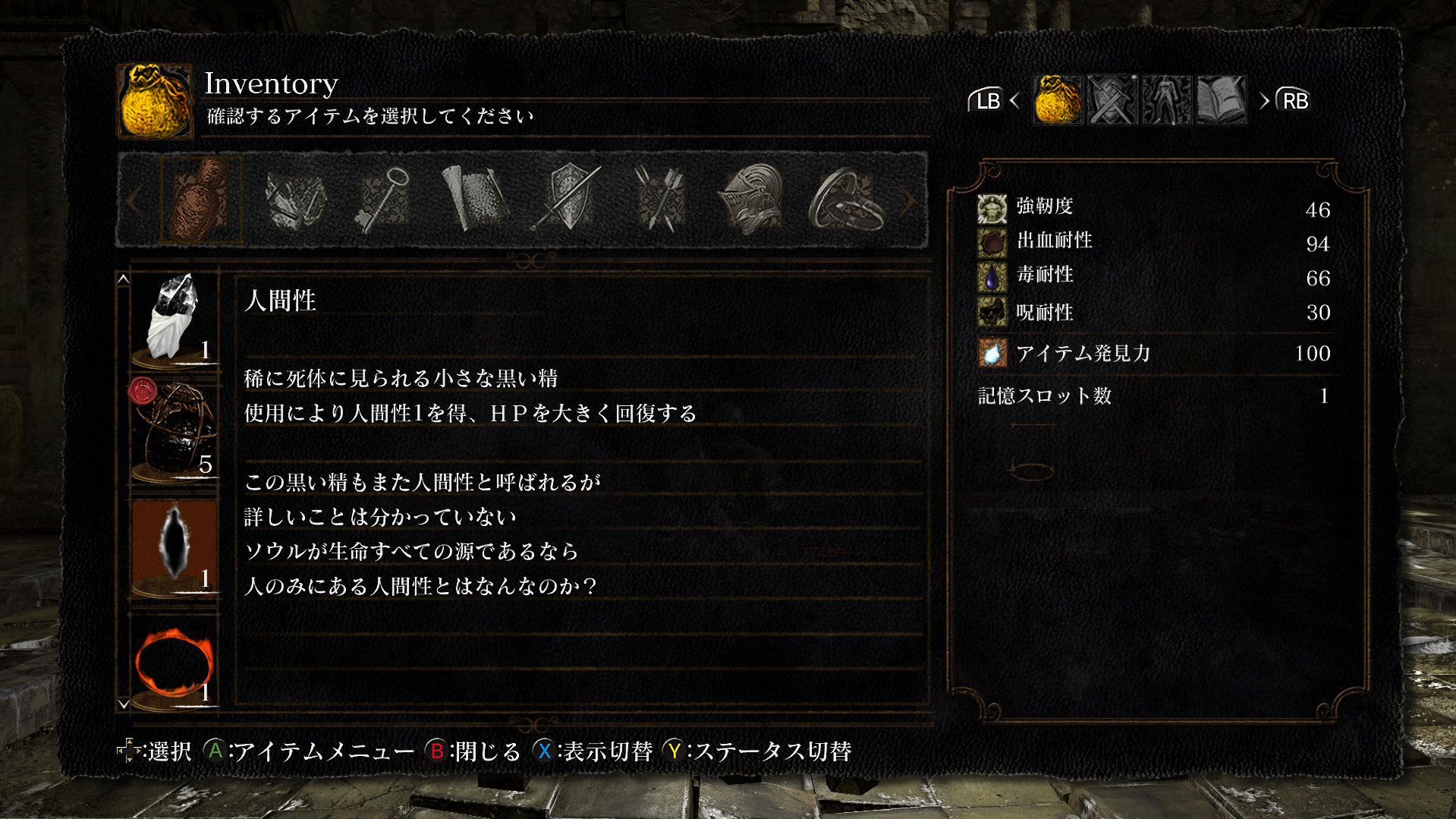
If you want to make a compromise between the two, choosing a game you've already experienced before is also a good option. You won't be that lost since you know what happens even if you can't read all of it. I personally do not enjoy it as incomprehensible input is also a big motivator to look up words and learn more vocabulary, but it might work for you.
Regardless of your choice, I recommend games with lots of text that can be paused and that also let you go back to read through older dialogue. A great bonus is if the game has voice acting for all that dialogue, which will help you practice listening and help when you want to move to other audio-oriented media. For Japanese, the best genres for learning would be JRPGs and visual novels, which usually make you press a button to proceed with dialogue.
While switching from one method to another is fine to test things out, bouncing from game to game should be avoided as it leads to more fatigue. The beginning of each game is usually the hardest part to actually go through, not only because of introductions and lore dumping but also because your brain adapts to the writer's style along the way. Try to beat a game before moving on to the next, only making exceptions if it's way too hard or simply not enjoyable to play through.
Stop Studying, Dummy
At some point in your journey, you will likely burn out. Once you reach an intermediate level, progress becomes slower and months turn into years without much of a change. This feeling is normal, studying can be demotivating... which is exactly why you should stop doing it.
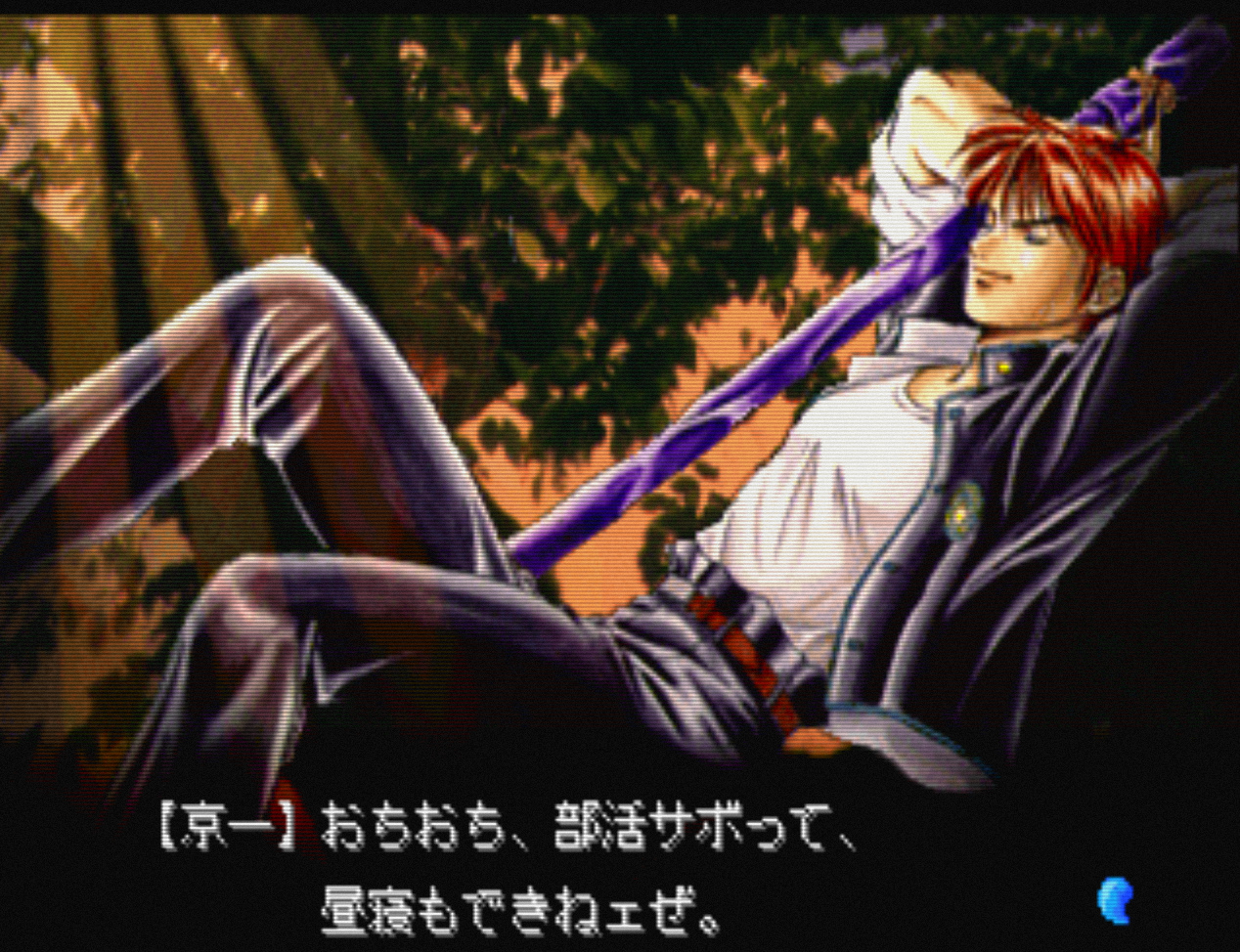
Now, I'm not saying that you should stop looking up and reviewing grammar or vocabulary you don't know. However, the final step in the continuous cycle of learning is to start living the language. Studying is easy, making it fun enough that it becomes a part of your life rather than school material is the hard part.
While taking it easy might sound like an inefficient way of acquiring a language, it's actually the opposite. As Stephen Krashen explains in the previously mentioned book, we actually tend to absorb more while having fun and not being stressed. Even if you do not take his word for it, language learning is an endless process, even natives stumble into vocabulary they've never seen before. Making things easier on yourself will lead to less stress. Taking the easy road for an endless journey is better than going all out only to give up later.
Personally, this was the biggest struggle in my journey. I kept giving myself goals like wanting to play certain games with intricate vocabulary, only to realize I was more interested in achieving that level than in actually playing it. The study mentality never left my brain and it led to my eventual burn-out as I was playing to challenge myself rather than out of my own interest.
The main thing to take away is that once you understand enough to play practically anything you want with enough effort, just... play whatever you want. Seeking a new challenge can be exciting but if you're not actually interested in it, it'll feel like a waste.
Final Thoughts
Learning a new language is definitely a difficult task but you shouldn't underestimate what you can achieve in a few years. My goal with this article was to explain the immersion approach to language acquisition while also hopefully motivating and helping those who have a desire to learn a new one but don't know where to start.
Regardless of the reason you might want to learn a new language, if you really need it or love its structure and/or culture, you will eventually become good enough at it to consider yourself fluent. It might seem overly optimistic, but it's the truth as long as you don't give up. We don't acquire knowledge by studying hard, we do it by studying often for a long period of time.
Comments
Sign in or become a SUPERJUMP member to join the conversation.
